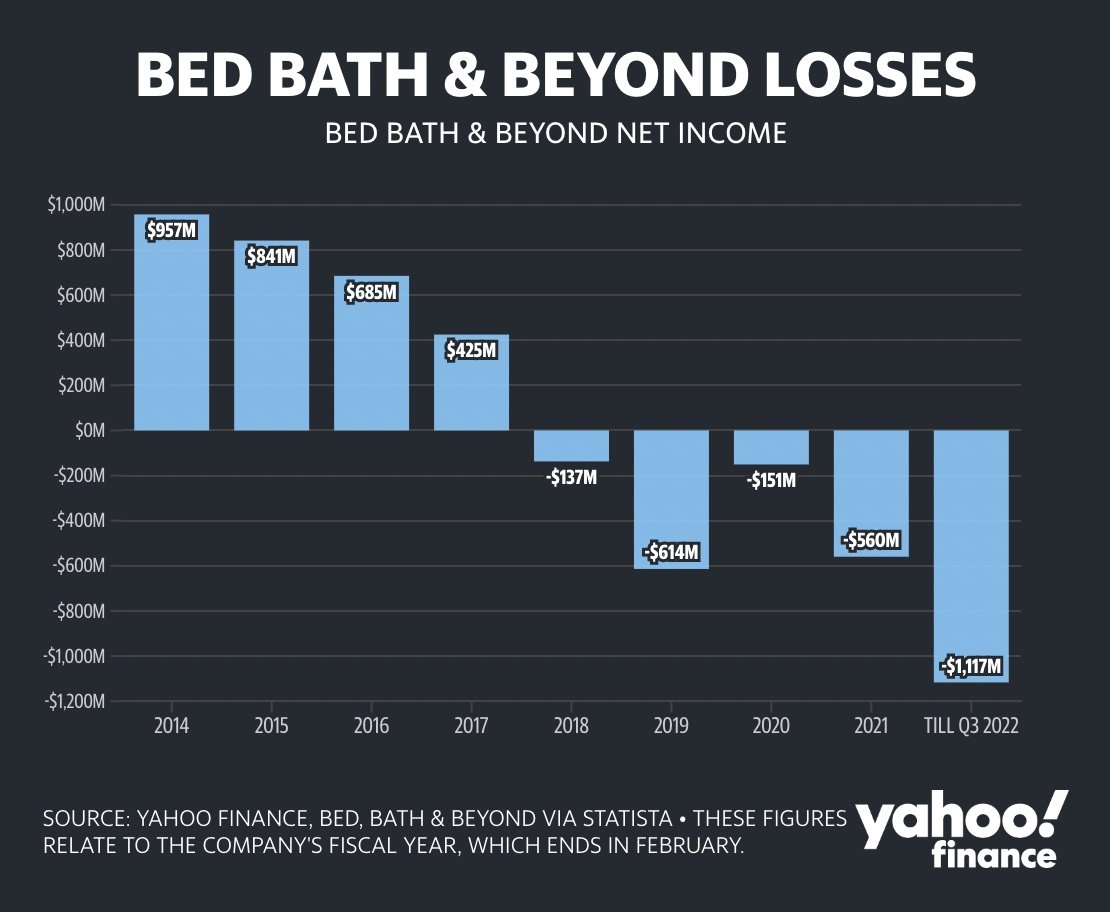Bed Bath & Bankruptcy Inevitable When You Don't Understand Your Customers
Why Did Bed Bath & Beyond File for Bankruptcy?
Narrowly focusing on a profitable and growing segment of customers, and then maniacally serving them is the only recipe for success in any business.
Following the path to help investors get paid is usually not the best way - on its own - unless there is some deeper consumer strategy behind it.
What Mistakes Did the Management Team Make?
Mark Tritton's turnaround was doomed from the beginning.
The investors were focused on bringing in the right management team to execute a specific strategy -- private-label brands -- rather than learning how to reinvent the firm without shocking the system.
The fact that Buy Buy Baby was never part of the reinvention plan I almost consider criminal negligence.
Management never experimented enough to build their "scalable concept" which could then be used to retrofit the rest of their store fleet. They came in with the answer already filled in by investors.
Share buybacks likely didn't help them either. A Yahoo News report mentioned that $11.7B in cash was spent to buy back the company's own stock. Talk about manipulation and paying yourself bonuses.
Think they miss that $11.7B now? Smells like a lawsuit.
It was probably too late for online when they took over. You're not going to compete with Amazon, Walmart and Target which are all much stronger than they were 10 years ago, which means for online profitability to work you need to leverage your stores.
Investors would never give them time to execute on this. Plenty of experts marveled at Mark Tritton's team of Retail Avengers ("Just give it more time"), and indeed it would have been a remarkable feat to pull off. Turnarounds are hard for a reason.
Finally, the number one reason I didn't ever think this turnaround was going to work was simple: humility. I listened to plenty of interviews with the management team and never heard one simple phrase: "We're not sure the best customer segment to focus on. That is job 1. Once we discover that, we will ramp up our resource investments." If I had heard that, I would have known the team was willing to tell the investors it was wrong in its thesis, and was going to find its own path to success.
Instead, what we have here is just another example of using other people's money to fund a boondoggle adventure, proving it isn't just venture capital that can waste time and resources chasing a bad concept.
What is the Importance of Understanding Customers in a Business?
Bed Bath & Beyond's bankruptcy serves as a cautionary tale for businesses that fail to understand their customers. The company's reliance on private-label brands and its complete lack of understanding of its customers proved to be fatal in the face of fierce competition from giants like Amazon, Walmart, and Target. The business world is continuously evolving and becoming more competitive, so it is crucial for businesses like Bed Bath & Beyond to prioritize customer needs and invest in scalable concepts that can drive long-term growth.
Expert Consulting: How Will You Grow Your eCommerce Company?
When growth is elusive, I am an expert at asking incisive questions to surface the real issues and then present straightforward ideas that your team can actually implement.
Mistakes are expensive. They cost money, of course. What’s worse is the opportunity cost. I work with investors and management teams worldwide to help them get a handle on their digital business plans to execute a clear path forward.


